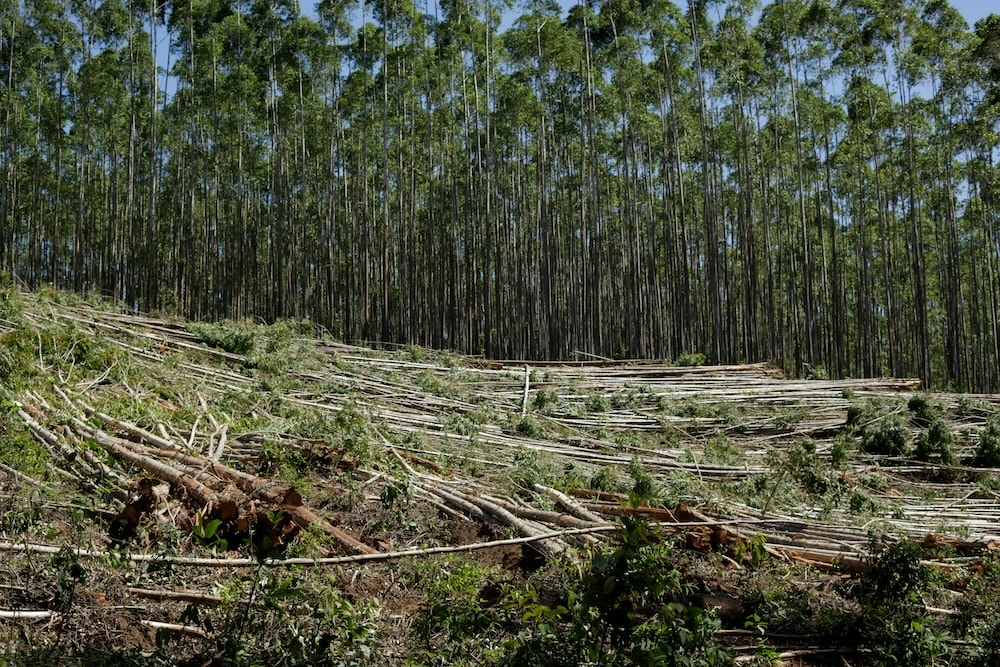Being raised in an environmentally conscious German household, I have always realized the importance of environmental protection. But how did I finally end up as a Sustainability Manager trying to push the implementation of complex Sustainability Strategies in even more complex, large companies? Given the multifaceted nature of sustainability it’s not an easy task. Many companies are willing to incorporate sustainability into their daily business but research shows that they are still lagging behind. Decision makers come across many conflicts between social, environmental and economic (in particular short-term) goals (to be decided on) when implementing sustainability strategies. This leads to decision making dilemmas that are the rule rather than the exception.
So why am I putting all my energy in this topic, even though it’s complex and every day brings a new challenge? To be honest – I am just following my passion and it is what I want to be doing.
How did I become a sustainability manager and acquired the necessary skills?
When working with Accenture, I joined a newly-created Sustainability Community of Practice without even knowing in detail what was behind it. I just knew I had to get involved. I soon realized that I wanted to focus on sustainability full time, which required building up my knowledge in the field.
Finding suitable training and study options was the next logical step. I quickly realized that at that time the only way to dig deeper into the topic was to pursue a Ph.D. in that field as my aim was to contribute to the corporate responsibility area on a strategic level. I also quickly found out that in Germany Leuphana University Lüneburg was the right place to be.
After submitting my Ph.D. application, I was offered the opportunity to do a Ph.D. at the INFU UNESCO Chair for Higher Education in Sustainable Development. I preferred pursuing an external Ph.D. i.e. to not work at the chair as I wanted to continue working in the corporate environment to combine and use the insights from both worlds.
Even though it was stressful it turned out to work out quite well, mainly due to the unexpected and continuous support offered to me by fellow PhD students and faculty from Leuphana as well as Sustainability Managers and consultants. I can only assume that this supportive nature links back to the sustainability field itself – possibly people are intrinsically motivated and want to drive the topic rather than being motivated by personal gain.
Today, I still try to give back this support whenever possible, be it through supporting interested people in finding their sustainability career path, answering questionnaires from students or through lecturing. By providing this support I hope to at least rudimentarily inspire younger generations to pursue a career in that direction. It actually makes me quite happy to see the growing interest in corporate sustainability!

Why did I choose to work in the corporate sector?
Whilst doing my PhD I decided to join Telefonica’s Corporate Responsibility Department, focusing on corporate sustainability strategy, reporting and communication, which gave me the opportunity to directly link the job and the Ph.D. In my current role at Allianz I am supporting the global sustainability strategy development (stakeholder surveys / materiality analysis / SDG integration) and am responsible for the group-wide sustainability reporting and assurance (see www.allianz.com/sustainability), as well as supporting the local entities in defining and implementing their strategies.
I think that you can advocate sustainability in nearly any company as long as there is honest and serious engagement in sustainability topics and a true commitment by senior management (see also my blog post on necessary conditions in companies to successfully implement sustainability ).
Based on more than 10 years of working experience in companies, international organizations and pursuing a Ph.D., I personally have the feeling that I can currently contribute most in the private sector. Large international companies provide the opportunity of having a huge reach to enable positive impact on society, setting best practices and motivating peers and people on the fence to follow.
But most importantly, I see that we need all sectors working together – from academia to private and public sectors to align our forces in order to solve the sustainability challenges that lie ahead.
So, over to you, what are the necessary steps when you want to pursue a career in CR?

Not everyone is fortunate enough to find jobs that they love doing. To those who are passionate abut sustainability, here are some general hints on how to find jobs in sustainability (kept at a broad level as many factors vary with the country, the company size and the specific role you are looking for):
- Build up your skills, based on your ideal role profile: First and foremost you should have an idea of the role you want to work in, ideally by the latest when you choose your master studies. On the corporate level there are several options. Within a central Corporate Responsibility (CR) team (e.g. at Allianz our central CR team coordinates the group-wide activities) you have different roles which range from strategy and governance, to reporting and rating to environmental management, managing social programs and donations, to communicating the efforts internally and externally. On top you can find further roles in different departments, e.g. an HR specialist managing internal social topics (e.g. diversity and inclusion projects), a procurement specialist implementing sustainable sourcing practices and an investment expert applying ESG (Environmental, Social, Governance) This differs widely by industry and you will find experts in engineering on the production and packaging site, geologists in mining companies and so on. Hence, the industry plays a role but also the area of expertise you choose. So focus on the role you imagine to work in as early as possible, but keep an open mind at the same time.
- Also, don’t give up, if you are an experienced professional in a different field already. Try to gain expertise in the your topic of interest based on trainings/further studies (for some ideas please see my website, so far in German only) and if possible get exposure to the CR function of your company. The range and amount of roles depend amongst other factors on the company size, as well as on the industry and the individual engagement of a company. Industries like e.g. food and textiles had higher visibility in the media and with this higher pressure to act sustainably than other industries.
- The following blog post also provides you with an overview of the most important soft skills needed as a Sustainability Manager, e.g. systemic thinking, the ability to manage conflicts and credibility. Ideally you build up your knowledge during your studies.
- Get practical experience: Use internships to gain relevant practical experiences and to check if this is the right type and size of organization to work with. I would also encourage you to take a step back if necessary, if e.g. the job offer does not fully meet your expectations and your prior experiences (e.g. if you are already an experienced professional but would like to change career paths). When doing my PhD and joining Telefonica I also started with a temporary part-time role which soon turned into a role with full responsibilities.
- Network digitally: The digital world offers the opportunity to network across the globe. Use LinkedIn, Twitter and other channels to connect to or follow people, organizations and companies in the field. This helps you to stay up to date on developments, relevant conferences and job offers. To get an idea of whom to connect to or to follow take a look at my LinkedIn and/or Twitter Profile.
- Network in person: Participate in relevant conferences to meet and discuss with CR practitioners in person. Many conference offer cheaper tickets for students. Search for relevant conferences in your field in your country and you will soon get an overview of what is out there.
- Find a mentor: Look for a mentor, ideally somebody who is already an expert in the field and who is in a role you would like to work in. The field of sustainability is quite broad, so choose your path based on your background and interests.
- Think about starting in a consulting role: Due to the rising importance of CR and the need for more consulting support, consultancies and auditor firms like Accenture, PwC, EY and KPMG are currently recruiting many people across different levels. If this is for you to take a look at their offers. It is a good opportunity to gain first practical knowledge in the field and to build up your expertise across topics and industries/sectors.
- Job portals: Use job portals to keep up to date and to regularly receive job offers. Common portals also offer specific CS/CSR/CR roles (e.g. indeed, monster, stepstone) and there are more and more specialized CR job portals and recruiters emerging as e.g. Acre, Weinreb Group, Walk of Life Careers, Talents4good. Those are often focused on specific regions and/or roles.

I hope this is helpful and provides you with a good starting point. In the end it all depends on two of the most important skills for Sustainability Managers:
Persistence and patience. Good luck!
You are also welcome to join the discussion on Twitter @SaskiaJuretzek














